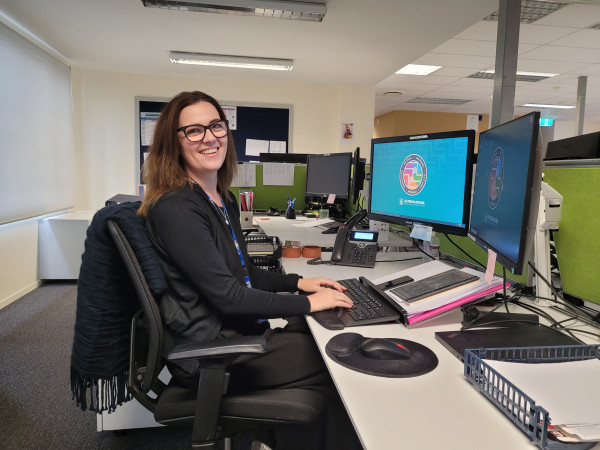22 February 2023
What makes a great probation officer? Insights from a Service Manager and District Manager
With the majority in the corrections system being managed in the community, probation officers play an important role at Corrections, motivating change, ensuring compliance and helping people to access support during a community-based sentence.
We talked to Kate, a Service Manager for Hastings Community Corrections and Kirsten, District Manager for the Rotorua/Taupo/Tokoroa District, to understand what makes a great probation officer, and how new recruits can develop their skills.
People skills, resilience and good decision making
As a probation officer, much of the role involves working with people. Probation officers need to be able to relate to and understand the needs of the individual who has been, or will be sentenced, but also to engage with whānau and social service agencies.
Given this, it’s unsurprising that some of the key skills are about the ability to relate to people and read situations.
“The skills and attributes of a good probation officer are being approachable, showing empathy and an open mind while being able to apply problem solving and professional decision-making skills,” says Kate.
“It’s about understanding that a person’s journey throughout their life has impacted on where they are today, but doesn’t define who they are today.”
To make lasting change, Kate says that it’s important to have resilience and take the time to understand each person that they are working with.
“Probation officers need to able to tailor their approach to the person, while making each contact meaningful and with purpose.”

Service Manager for Hastings Community Corrections, Kate.
Kirsten agrees, noting that people’s needs can vary widely, so the ability to respond effectively to what you observe, is key.
“It is about making an initial connection and establishing what supports can be provided to encourage rehabilitation and reintegration, based on the needs of the person who’s under our management. Sometimes there are the needs of whānau to consider as well, so probation officers find themselves working with many diverse people in unique situations.
"You need to be willing to identify risks and needs and respond to these appropriately... I think deep down you have to have that core passion of working with people, of wanting to make positive change for people, and for your wider community.”
Bringing your life experience and ability to reflect
For people in another role who are considering being a probation officer, Kirsten says that engaging in reflection can be a useful skill to practice to help prepare them for the career move.
“One of the key skills is the ability to reflect on experiences – taking the time to consider what happened, what did I do to contribute towards that, how might I do things different or what did I do really well with them there?”
Life experience can also give people a lot of the transferrable skills valuable in a probation officer.
“This can be supported by further education in social services or other study. However, many skilled practitioners have backgrounds that are not related specifically to the role,” says Kate.
Going from good to great - learning on the job and from others
Kate says that much of the role of a probation officer is best learnt on the job and through training. This includes comprehensive training when probation officers first start, where they learn key principles underpinning the practice – assessing risk, planning for interventions and programmes, working with people in the community and reflective practice.
However, the learning doesn’t just stop there, with probation officers continually being encouraged to seek feedback, attend reflective sessions, and shadow each other’s practice. There are also ongoing refresher training opportunities that can help probation officers to continually grow and improve.
For people starting out in the role, Kate recommends that people “take it slow, learn one thing at a time and learn to walk before you run.
“There are many different tasks to a probation officer role that you will learn as you go. We work in a learning environment that supports everyone to develop and grow at their own pace.”
Ready to make a move?
Start your journey - check out the a list of our current opportunities then apply online today!